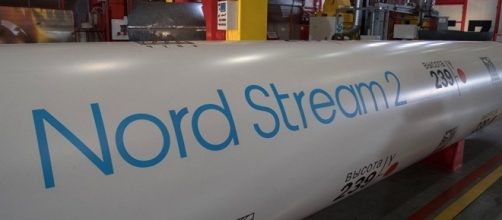A recent law that passed the Senate in the United States has raised fierce calls of anger and resentment from Germany and Austria. While the law was designed to target Russia with fresh sanctions, it puts a huge European energy infrastructure project in jeopardy.
The bill would allow the US Government to impose fines on European companies that do business with Russia, and in the world of European energy, that would cause some very difficult decisions to be put on the table.
As it stands today Central and Western Europe import around one-third of their gas from Russia, and the Nord Stream 2 pipeline would boost that amount significantly.
The reason for the new sanctions isn't well understood, but Russian interference in the 2016 Presidential election is being cited.
Unhappy allies
Until recently, Germany and Austria were staunch supporters of the United States. Unfortunately for them, it would appear that they are no longer be able to choose the most economic supplier for natural gas.
While this bill still has to pass the House of Representatives, and be signed into law by the President, the sanctions that it would create would cause a major rift to develop between the US and Europe. The Nord Stream 2 pipeline is a major investment, and if scrapped, would leave some very tense feelings lingering between the three-plus parties involved.
The construction cost for the project is north of $10 billion, but the real pain would be felt by the European nations that would have to look elsewhere for more expensive natural gas.
Pipelines like the Nord Stream 2 create significant cost savings at a regional level over decades, so if it is abandoned the nations aren't likely to forget quickly.
Economic interests
The major issue is that large European firms would be forced into a position where to continue to do business within the US financial system, they would be forced to pay heavy fines, or walk away from Nord Stream 2.
On the European side, companies like BASF, Wintershall, Austria's OMV, Voestalpine, and Royal Dutch Shell are working to make this infrastructure project a reality.
In fact, German ex-Chancellor Gerhard Schröder is chairman of the board of Nord Stream AG.
This is a subsidiary of Gazprom which was set up to manage the project, and with heavy hitters like Mr. Schröder on the team, the political fallout in Europe isn't likely to be brief, nor slight.
On the Russian side, Gazprom, and thus the Russian state would lose out on decades of revenue from gas sales. It would also create major headwinds for any sort of European-Russian economic cooperation going forward, and the Kremlin isn't likely to take that sort of tampering in-stride.
A spokesperson for Current German Chancellor Angela Merkel has threatened the US with retaliation if this bill becomes law, and German firms are penalized.


